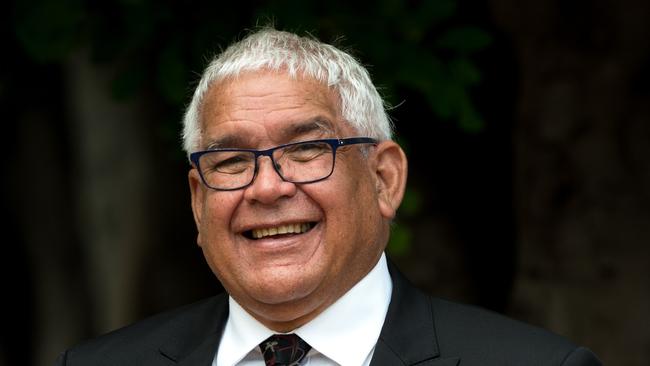Scott Morrison ‘wilfully blind’ about history of slavery, says Mick Gooda
Mick Gooda has accused Scott Morrison of ‘wilful blindness’ and denial, after the Prime Minister claimed Australia had no history of slavery.

Australia’s former Aboriginal and Torres Strait Islander social justice commissioner has accused Scott Morrison of “wilful blindness” and denial, after the Prime Minister claimed Australia had no history of slavery.
Mick Gooda said Mr Morrison was perpetuating lies and had done a disservice to indigenous people, ignoring generations of Aboriginal and Torres Strait Islanders who had their wages stolen by state governments. The Prime Minister also overlooked the thousands of South Sea Islanders “blackbirded” or kidnapped to work in North Queensland cane fields as unpaid or underpaid labour, Mr Gooda said.
“This is just another part of whitewashing that we didn’t have slavery — go and tell that to all the people who had their wages stolen. My mother was one of those, and died without getting anything,” said Mr Gooda, who led the Queensland Stolen Wages Reparations Taskforce.
“They worked for tobacco and flour. To say there was no slavery in this country is wilful blindness and a continuation of the myths about Australia, and a continuation of the denial of what happened here. He’s really done us a disservice today by saying this.”
Mr Morrison was asked on radio station 2GB about the call to tear down statues such as those of Captain Cook as part of the Black Lives Matter movement.
“In his time, (Cook) was one of the most enlightened persons on these issues you could imagine,” he said. “Australia when it was founded as a settlement, as NSW, was on the basis that there’d be no slavery. And while slave ships continued to travel around the world, when Australia was established, yes, sure, it was a pretty brutal settlement. My forefathers and foremothers were on the first and second fleets. It was a pretty brutal place, but there was no slavery in Australia.”
The Queensland government last year settled a landmark Federal Court class action, agreeing to pay $190m in compensation to Aboriginal and Torres Strait Islander people who had their wages stolen by the government.
In approving the settlement, judge Bernard Murphy found that between 1939 and 1972, Queensland Aboriginal and Torres Strait Islander people were controlled by “discriminatory, unjust and … disgraceful” legislation that saw them treated as “lesser human beings”.
“Indigenous people were forced to work in jobs of the government’s choosing, and most, if not all, of their wages taken by the government and never repaid,” Justice Murphy found.
The indigenous workers were “controlled by government-appointed superintendents or protectors in relation to their ability or capacity to earn income, own property, move or travel to areas outside the settlements, marry or even engage in customary native practices”.
Australian South Sea Islanders Port Jackson president Emelda Davis said the Prime Minister should meet with her face to face to learn the truth about Australian history, describing his comments as “embarrassing” and “very disappointing”.
Ms Davis’s grandfather Moses Topay Enares was coerced off an island in Vanuatu in the late 1800s at the age of 12 and forced to work in the Queensland cane fields.
“That’s the kind of stuff (Mr Morrison) needs to understand … whether it was indentured labour or not, it’s slavery,” Ms Davis said.
“The definition is one man’s control over another, and that’s exactly what this was.”
Ms Davis said the Queensland cities of Townsville and Mackay were named after Robert Towns and John Mackay, notorious slave traders.
Northern Territory Labor senator Malarndirri McCarthy said Mr Morrison’s statement demonstrated a “very selective understanding of Australia’s history”.
“The Cocos-Keeling Islands, which fall under the Lingiari electorate, began with Malay slaves and indentured labourers from South Africa, New Guinea and the Dutch East Indies,” Senator McCarthy tweeted.
“Parts of north Queensland’s prosperity was also built by South Sea Islanders kidnapped from their homes to work as unpaid or poorly paid labourers in the cane fields. In the Northern Territory, the pastoral industry was built on the backs of Aboriginal people who were not paid equal wages.”




To join the conversation, please log in. Don't have an account? Register
Join the conversation, you are commenting as Logout